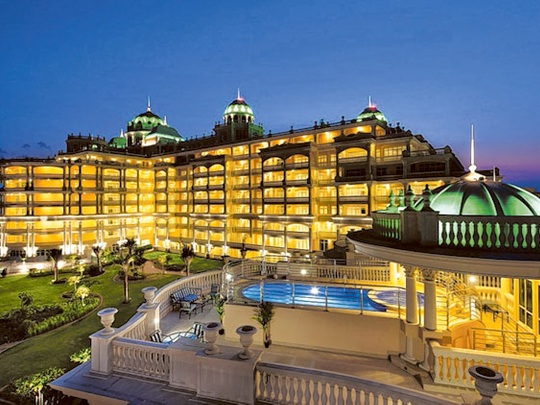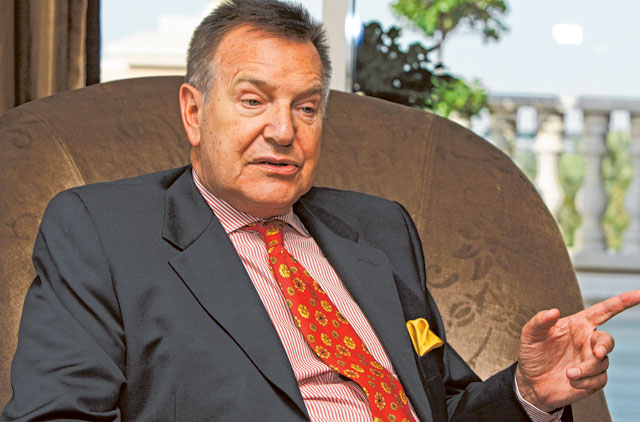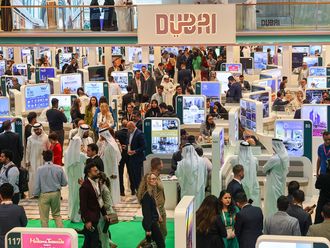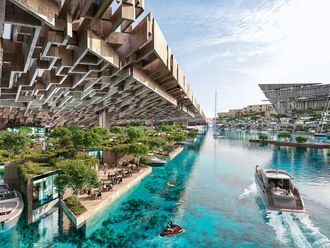
Dubai: The Middle East and Africa region will account for about 42 per cent of luxury hotel chain Kempinski’s global revenues in two years’ time, up from the current 36 per cent, according to the company’s top executive.
“The Middle East and Africa today accounts for 36 per cent of Kempinski’s global revenues. And it should grow to about 42 per cent over the next couple of years. And depending on how we develop in India, it might spiral [thereafter]. India is too new [a market],” Ulrich Eckhardt, Kempinski’s President for the Middle East, Africa and India, told Gulf News in an interview.
The luxury hotel management company today has 34 hotels in the Middle East and Africa region, between operating and in different stages of construction and planning, according to Eckhardt. “In five years from now, that number will go up to 50 [hotels], and that would include India,” he said.
In terms of Kempinski’s overall bottomline, meanwhile, the Middle East and Africa region constitutes a whopping 45 per cent. “And we plan to hold it there over the next couple of years,” said Eckhardt. “That is because the bottomline will be somewhat diluted in the next two to three years because of additions in Africa.”
He further pointed out that the region’s contribution to Kempinski’s global bottomline is “stronger than other regions”. “In this region, the bottomline is percentage wise better because of higher margins,” he said.
Asked about Kempinski’s global expansion strategy, Eckhardt said: “From the company point of view, we have self-imposed limitation of number of hotels worldwide. This means that we will never have more hotels in number than the total age of our company, which is currently 116. We are a 116-year-old company. So we strive to ideally have 116 hotels on the map somewhere.”
Explaining that rationale behind, he said: “We are not a supermarket of brands… we are just one company that has one single brand. And our leadership believes that luxury is limited… the moment it’s no longer limited, it will no longer be luxury. It would become a mass article. And since we are in the luxury hotel management business, we are guided by this.”
He added that the other constraint is location and partners, i.e., finding the right partner for the right location. “Kempinski is guided by several constraints from the company itself and, constraints, location-wise,” he said.
Reinstating projects
Kempinski’s project on the Palm Jumeirah is a residence with a hotel component. The hotel was due to open a few years ago but was put on hold owing to economic downturn. As Eckhardt says: “It has been pushed back by us because of the recession in 2008.” He added that it is now due for opening in around 18 months time.
Another of Kempinski’s project in the UAE that fell prey to the recession was in Dubai’s Business Bay area. That hotel was supposed to open in 2011 but was shelved, says Eckhardt, and is now going to open in 24 months time “possibly”, according to him. “It’s a small, business hotel… not really big,” he pointed out.
The company was further forced into canning its planned project on the Palm, Jebel Ali. “We had a site at Palm, Jebel Ali — similar to the one we have on the Palm Jumeirah — which we completely wrote off. But that project is now completely off the books now. It will not come back,” said Eckhardt.
Elsewhere in the region, Kempinski has had to put on hold its Damascus property, due to the ongoing civil war in Syria. “It probably would be open by now but we have put it on hold for good reasons,” said Eckhardt.













